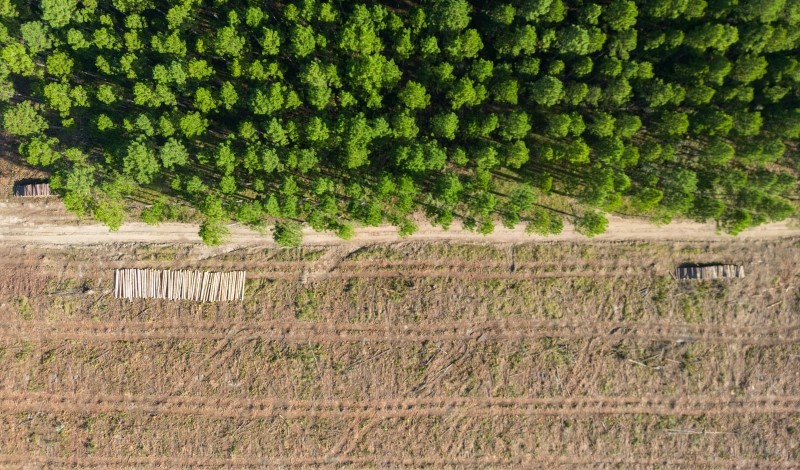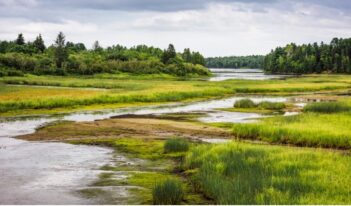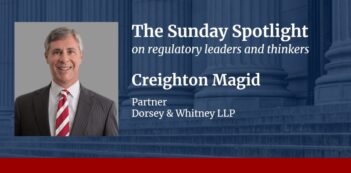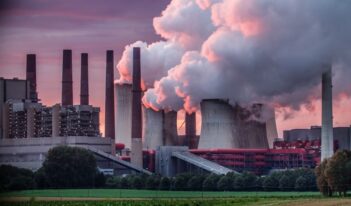
An EU law requiring deforestation-free exports could impact economies and ecologies around the world.
Every year, humans destroy 10 million hectares of forestry, which is an area roughly the size of Portugal. And most of this deforestation is caused—not by hurricanes and wildfires—but by farms and cows.
The increased need for livestock grazing areas and cropland drives the mass removal of forests, making up 90 percent of annual global deforestation. Deforestation, in turn, accounts for 11 percent of global greenhouse gas emissions.
The European Union recently responded to the threat posed by agricultural expansion with what one commentator called “the world’s toughest rules on deforestation.”
By the end of 2024, producers of certain goods must verify that their products are deforestation-free—that is, that their production did not involve the destruction or degradation of forests—before they can export them to the EU.
The regulation targets the most commonly purchased goods in the EU that are most responsible for deforestation elsewhere, including palm oil, soy, wood, cocoa, coffee, cattle, and rubber.
To prove that their products are deforestation-free, companies must disclose details about their products, including the geolocations of the plots of the land used as well as “conclusive and verifiable” evidence that its production was deforestation-free.
The EU also requires that companies assess the risks that the production of their goods pose to the environment. The regulation describes various criteria to analyze, including the presence of forestry, corruption, and reliable information in the country. Companies must explicitly consider Indigenous peoples in this analysis, including whether Indigenous peoples have prior ownership claims over the land such that the company should consult with them before and during production.
Finally, where such a risk assessment reveals a risk that products are noncompliant, operators must implement risk mitigation measures designed to fix the noncompliance.
Beyond the obligations of the companies, EU member states must carry out annual random compliance checks on the operators who sell in their territories. A company could be fined as much as 4 percent of its total annual profits in the EU market for violating the deforestation-free rule.
The EU will also rate each country based on the risk to the environment posed by its manufacturing processes. Based on a country’s likelihood of engaging in deforestation and producing noncompliant products, the European Commission will classify countries as high-, medium-, or low-risk.
If a country is deemed high-risk, EU member states will conduct a compliance check on 9 percent of the sellers from that country, as opposed to checking just 1 percent of sellers from low-risk countries.
Countries have already begun lobbying for the EU to rate them as low-risk. Legislators in Malaysia and Indonesia—the world’s top two producers of palm oil, responsible for 85 percent of global palm oil exports—have arranged a joint task force with EU regulators to discuss this issue.
Overall, the regulation’s effects remain uncertain. Pamela Coke-Hamilton, the Executive Director of the International Trade Center within the United Nations, reportedly said that the law’s impact on global trade could be “catastrophic or it could be OK.”
Consider Brazil, a country that has more cattle than people. The nation relies heavily on soy and beef exports, and the EU is its second-largest customer for those products. Yet soy and beef production cause upwards of 95 percent of the deforestation in Brazil. The new regulation, therefore, has the potential to upend Brazil’s national economy.
And beyond a country-level impact, broader changes in trading patterns may be afoot. Faced with higher costs of trading in Europe, companies with deforestation-linked products could simply opt to trade in other markets instead, such as China.
The regulation could also spur significant environmental changes. Rather than tear down forests to grow a product, producers could shift to using and damaging other vulnerable biomes instead, such as savannahs, grasslands, and wetlands. Environmental activists highlight this “deforestation leakage” as a reason to remain vigilant about protecting all ecosystems.
Perhaps the most pervasive concern about the regulation, however, is its impact on small farmers and producers, also called smallholders. In Indonesia, for example, smallholders own almost half of all the land used for palm oil production.
Given the law’s robust disclosure requirements about the supply chain, many producers will have to invest in new technologies to track their products and ensure compliance with the regulation. While large producers could likely devote the time and financial resources needed to adapt, many smallholders will not be able to afford these added burdens.
As a result, small farmers may find themselves shut out of the European market.
And, once excluded from the market, these smallholders could struggle to break back in. Coke-Hamilton reportedly warned about such a “vicious cycle,” where loss of income begets poverty, and poverty is “at the root of deforestation.”
Yet the law has also met with tremendous optimism. Environmental groups view the law as a win for forests and those who want to protect them. Activists also celebrate the greater support the regulation provides to Indigenous peoples seeking rights to their land.
Ultimately, supporters acknowledge that this regulation alone cannot solve the climate crisis, but it is an “essential step.” Time will tell just how the regulation will impact ecosystems, trade, and cultures across the planet.



